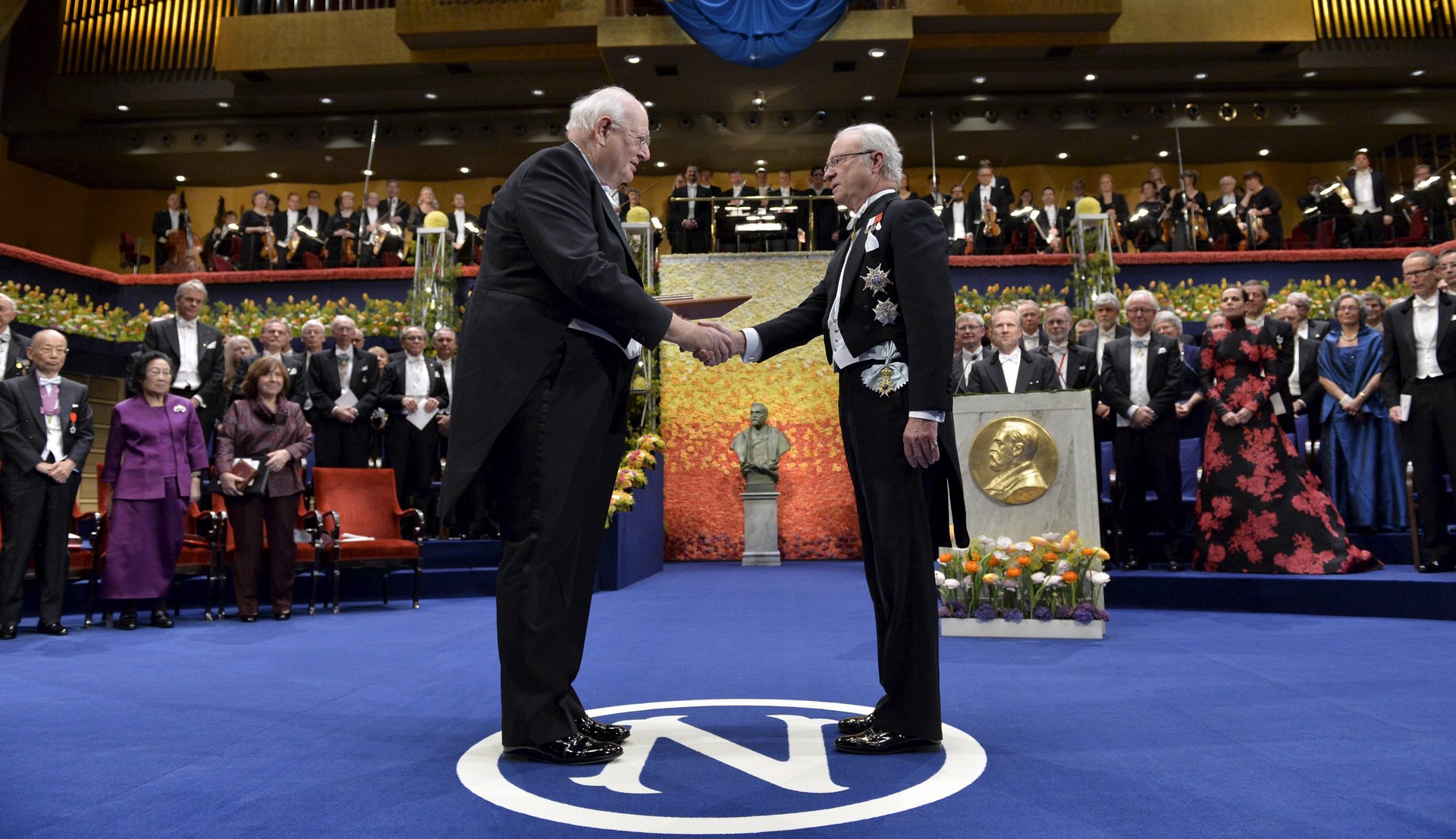The Nobel Prize committee explains why women win so few prizes
The last Nobel Prize of 2017, in economics sciences, was awarded to Richard Thaler “for contributions to behavioral economics.” All six prizes given to individuals this year have gone to men, apart from the Nobel Peace Prize which was awarded to a coalition of 100-plus NGOs from around the world. The Swedish Academy says that, in aggregate since the prize was founded in 1901, women have won 49 out of 923 prizes. About one in every 20.


The last Nobel Prize of 2017, in economics sciences, was awarded to Richard Thaler “for contributions to behavioral economics.” All six prizes given to individuals this year have gone to men, apart from the Nobel Peace Prize which was awarded to a coalition of 100-plus NGOs from around the world. The Swedish Academy says that, in aggregate since the prize was founded in 1901, women have won 49 out of 923 prizes. About one in every 20.
When half of humanity is made of women, a natural question asked by a journalist at today’s prize announcement was: Why do so few women win the Nobel Prize? Here is the answer from those on the Nobel Prize committee who make the selection.
Göran Hansson, vice chair of the board of directors of the Nobel Foundation, said:
We are very proud of the laureates who were awarded the prize this year. But we are disappointed looking at the larger perspective that more women have not been awarded. Part of it is that we go back in time to identify discoveries. We have to wait until they have been verified and validated, before we can award the prize. There was an even larger bias against women then. There were far fewer women scientists if you go back 20 or 30 years.
But I’m not sure that’s the entire explanation. We and other prize-awarding institutions have taken measures. If you look at the Nobel Prize committees, there are women chairing three of the six committees. There are female scientists on all the committees. So I don’t think there is any substantial, er, male chauvinist bias in the committees. The committees have invited—have taken special efforts to identify—women scientists to be nominated for the prize. But that has started this year, because we are concerned that we may not get enough nominations for female scientists.
I suspect there are many more women who are deserving to be considered for the prize. Therefore, we have started to identify leading women scientists and have invited for them to be nominated. We will, starting next year, indicate in our invitation to nominate women scientists and consider ethnic and geographic diversity. Finally, we are going to have a conference this winter with the different prize committees to discuss this issue. So we are concerned, and we are taking measures. I hope that in five years or ten years, we will see a very different situation.
Per Stromberg, the chair of the committee that gave the prize in economics, said:
I can underscore what you just said. I think there are two important points.
First is that we are indeed awarding research, where discoveries were made in the 70s, 80s, early 90s, during a time when we had much more of a gender bias in economics as well as in many other sciences. It basically means that, as time goes by, the fraction of women Nobel laureates will increase. You can look at some of the prizes given to younger economists, the gender distribution is more even.
Second is that we are very concerned. What you have to realize is that the committee doesn’t freely decide on the prizes. We aggregate the opinion of the nominators all over the world. We are reliant on their nominations. So if there’s anything we can do, it’s a call for the nominating bodies to take this issue very seriously.
Hansson continued:
Consider this a request to all our nominators for all the prizes to consider women scientists who have made important contributions. Please.